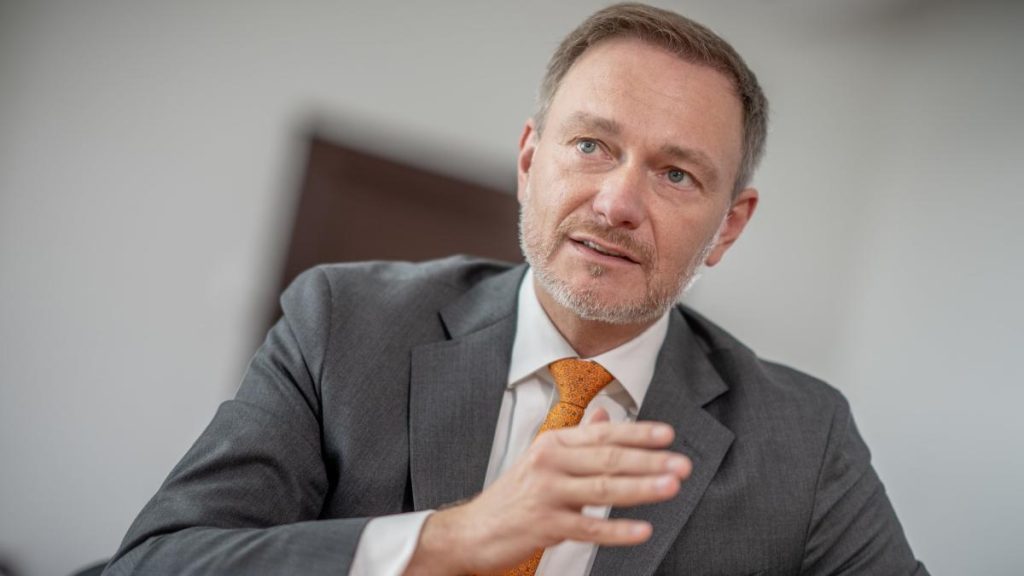Finance Minister Christian Lindner sees a potential increase of up to nine billion euros in the defense budget starting from 2028 in the German federal budget. This increase could be possible if disciplined financial management is maintained, with the debt ratio falling below the EU-mandated 60 percent of GDP. Lindner mentioned that if this limit is surpassed, the planned repayment of COVID-19 debts from 2028 could be reconsidered, with the funds being redirected to the defense budget. Germany has taken on emergency loans of around 300 billion euros in 2020, 2021, and 2022 due to the pandemic and the Ukraine crisis, which are scheduled to be repaid starting in 2028.
Lindner highlighted the opportunity to use the surplus funds to help Germany achieve its NATO target in the federal budget after the special program for the Bundeswehr ends. Before the pandemic, Germany had reached a debt ratio of 59 percent, meeting the European Maastricht criteria after a long period. The pandemic-related loans increased this ratio to 69 percent, but it has since decreased to around 63 percent. Lindner expressed confidence that by continuing on this path, Germany could return to pre-pandemic debt levels by 2028. This year was expected to be particularly challenging as the 100 billion euro special fund for the Bundeswehr could be depleted, necessitating full defense spending from the regular budget to meet the NATO two percent target.
The Finance Ministry estimates an additional 25 billion euros may be required to fulfill the two percent target, even if debt repayment is forgone. This would necessitate reallocation from other budget areas to cover the remaining 15 billion euros. Lindner remained optimistic, stating that achieving the NATO target is possible through economic growth and avoiding additional costly social spending commitments. He dispelled reports suggesting a shortfall for the next year, asserting that the NATO target will be met in all upcoming years. Following the Russian invasion of Ukraine, Germany has declared a military turning point, recognizing Russia as a security threat and committing to strengthening its defense capabilities to meet NATO obligations.
The government has pledged to reach the NATO two percent target on defense spending, facilitated by the 100 billion euro special fund for the Bundeswehr set to be fully utilized by 2027. However, the post-2027 strategy for meeting defense expenditure remains unclear. Lindner emphasized that the potential for financial flexibility should incentivize all parties to maintain discipline in the federal budget. He urged unity in upholding the constitution and coalition agreement, emphasizing the importance of fiscal responsibility to achieve stable finances, reduced interest costs, and additional financial flexibility through repayment plans.
Lindner proposed that the prospect of financial leeway should motivate all parties to adhere to budgetary discipline. He encouraged a commitment to the current path to achieve solid financial foundations without higher debt and taxes. Lindner criticized the ongoing debate surrounding the debt ceiling, suggesting that maintaining the status quo until the next federal election would enable citizens to decide on the future direction of government spending policies. By emphasizing financial stability and prudent financial management, Lindner outlined a vision for a lean government with reduced interest costs and lower taxes for taxpayers.


